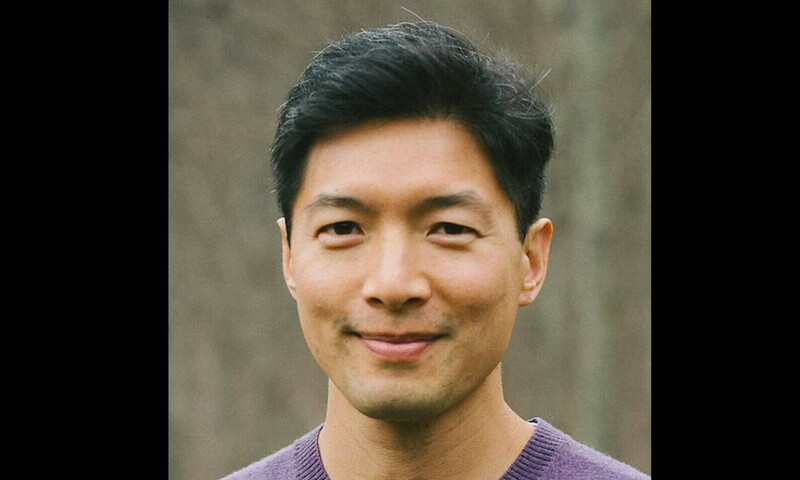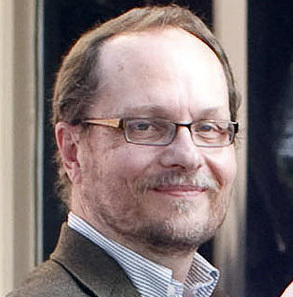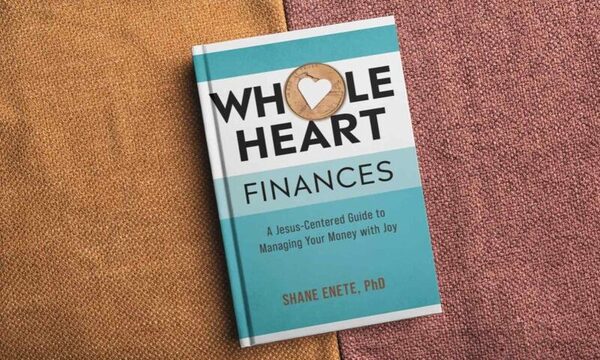Josh Kwan believes that there is a pattern to our lives, but the pattern only helps us if we understand it and use it to our benefit.
Kwan was the featured speaker at Crowellâs August âDistinguished Speakerâ event. He is the president of The Gathering, a learning community of philanthropists motivated by their Christian faith to steward wisely resources God has entrusted to their care. He is a co-founder of Praxis, a creative engine for redemptive entrepreneurship whose mission is to build ventures, foster community, and create content for equipping Christian innovators, founders and funders.
Kwan served as the Director of International Giving for the David Weekley Family Foundation and worked as a journalist. He also co-founded Abide, a mobile app for encouraging and enlivening the practice of prayer and meditation. He has a bachelorâs degree from Harvard College and a masterâs of business administration from Northwesternâs Kellogg School of Management. He lives with his family near San Francisco.
How Kwanâs Start-Up Started
As a journalist in Silicon Valley, Kwan had a chance to see first-hand the power and possibilities of entrepreneurship.
âIn Silicon Valley at the time, the startup craze was in full bloom, and the ecosystem of support for entrepreneurs was just astounding. If you have an idea to start a company, this is the richest, most nutritious environment to make it happen.â
But that environment had its drawbacks; along with the capital and the fervor came a set of values and expectations that Kwan had trouble accepting.
âMy co-founder at Praxis, Dave Blanchard, and I started thinking, âIf our faith defines everything about our life, why wouldn't it also define how we think about building a new venture, from the product-market fit to hiring and people practices?â We started calling it redemptive entrepreneurship; what is the redeeming quality of why you started this thing? We wanted to take the best of what we saw in Silicon Valley and say, âHey, what if you put God and the teachings of Scripture on the ground floor, into the very seeding of a startup?â That's what we did with Praxis.â
Stages of Life
It was a chance interview with a Praxis colleague that caused Kwan to start thinking about the stages of the working life. One of his protégés was turning 30, so she set up interviews with 30 people who might give her advice and wisdom. Kwan was one she approached, and he shared what he told her.
âThe twenties is your exploration period. Youâre finally an adult, you finished college, you're finding your interests, meeting lots of people, hopefully working with different types of leaders and teammates, trying a lot of different things and gaining a lot of experiences. There may be a few experiences you'd like to have back, but be gentle with yourself; some of those decisions were made with the best information available at the time, and you were also dealing with some rapidly changing versions of yourself. Give yourself grace.â
But the thirties require more intentionality.
âThe thirties are the synthesis phase, when youâre thinking about pulling everything together. Thereâs pruning; of all the adventures youâve had, itâs time to ask Okay, what stays? You canât put everything in the soup; you want to keep some vegetables, a few more spices, but more and more of everything isn't better. Itâs time to focus on the core, the central elements of your life, and on what you have to offer. So the fun of the twenties gives way to the satisfaction of discovering excellence: I seem to be really good at this thing! But it takes intentionality and work to leverage all that exploration you did in your twenties.â
For most people, Kwan said, this is when doubt creeps in.
âItâs also a time of questioning: I don't know ⊠am I ready yet? I think about Joshua, being commissioned to take over from Moses in the wilderness. Itâs like the backup quarterback taking over after a Hall of Famer has retired. Is this person good enough? Can he lead? And God doesn't tell Joshua exactly what heâs going to go through. What He says instead is be courageous and I will be with you wherever you go. So if you believe that, if you know God is going to be with you wherever you go, what could your future look like?â
Kwan himself is in his forties, so the next stage is personal for him.
âIn your forties, you've explored, youâve synthesized, and now it's time to accelerate. You've shown yourself capable, youâre on the right track. Youâre trying to gain speed, so it's time for you to unfurl your sails to catch more of that wind.â
How do you do that? Kwan says itâs the small things.
âWe love entrepreneursâ stories about mountaintop experiences and Eureka moments, but youâre likely only going to have a few, if any, of those. Instead, there are small daily things you can begin in your twenties or thirties that will pay huge dividends the rest of your life; making a commitment to spend five minutes each day memorizing scripture, or making it a habit to set aside Sabbath. Itâs as simple as developing a liturgy or a pace of life that every day says, I'm going to dedicate today to God by doing today well. Theyâre small things, but done consistently year over year, they make a tremendous difference in your spiritual maturity.â
What about after your forties? Kwan says itâs time to start thinking about mentoring.
âMy pastor is retiring, and in his final sermon he talked about 2 Timothy 3, and who is your Paul and who is your Timothy? You should have someone who is further along the path than you, someone who can reveal and share the depths of life with you; someone you're trying to imitate. But also, who are you pouring into the way that Paul does? Are you passing on what God has taught you? Are you thinking about how to hand off this work that God has helped you build?â
The Crowell Distinguished Speaker Series brings a selection of accomplished business leaders to campus to share their varied professional and personal insights and provides the opportunity to network with fellow attendees including alumni, MBA mentors, faculty, and current and prospective MBA students. The event is always free and open to all. Future events can be found on the Crowell events calendar.
To learn more about and apply to Crowellâs business program, visit the website.
 51ÂÜÀò
51ÂÜÀò

.jpg)
.jpg)

